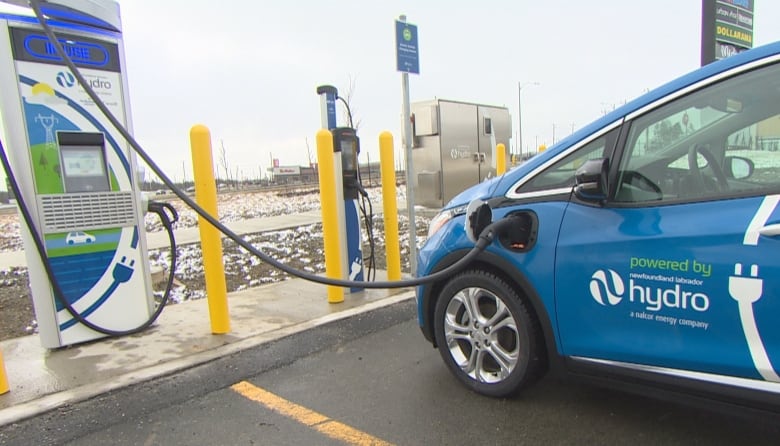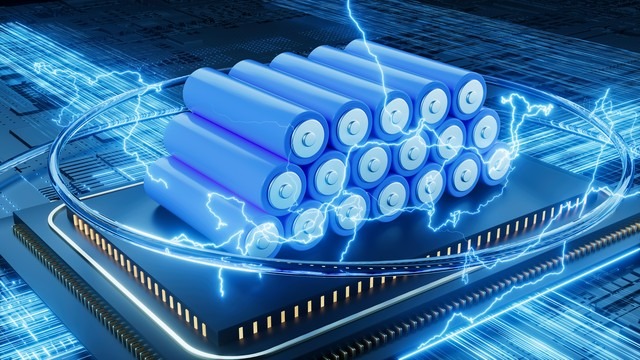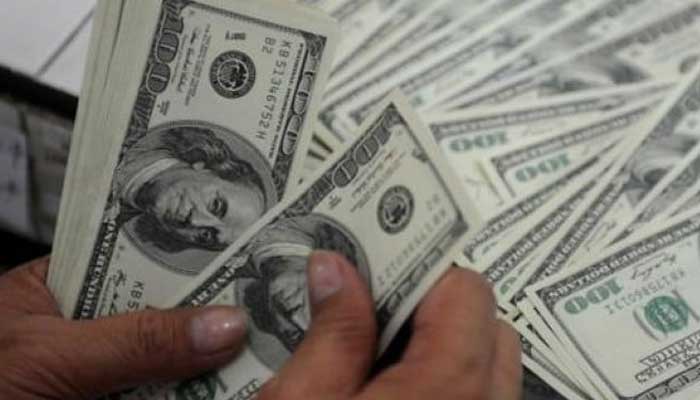Table of Contents
With an uptick within the variety of electrical automobiles on the roads in Newfoundland and Labrador, EV advocates are calling for the province’s utilities to pay for brand spanking new charging stations — however the client advocate is placing the brakes on that concept.
In line with Dennis Browne, Newfoundland Energy and Newfoundland and Labrador Hydro not too long ago utilized to the Public Utilities Board to start out billing ratepayers for the gear wanted to arrange and repair new electrical automobile chargers throughout the province.
It is a notion Browne strongly opposes because the province’s client advocate.
“For the 2 utilities to even recommend that the ratepayers pay something towards that’s fully unacceptable,” he stated.
The PUB in the end determined to not approve the applying, however requested the 2 utility firms to supply extra data on the idea in a separate utility.
“The appliance shouldn’t embody any expenses to the ratepayers of the province,” stated Browne.
“The ratepayers of the province are oversubscribed proper now, plus now we have the Muskrat Falls expenses coming onto our payments in some unspecified time in the future sooner or later. We’d like each cent we are able to get to cope with that.”
In line with Hydro, the price of constructing the primary section of the province’s charging community was shared between the utility, and the provincial and federal governments. As nicely, for a lot of EV drivers, nearly all of their charging could be accomplished at house.

Browne stated ratepayers ought to be anticipated to pay just for the electrical energy used of their houses. Moreover, Browne stated new infrastructure would solely profit a small minority of drivers.
“There are 600 electrical automobiles within the province. There are 350,000 automobiles which aren’t electrical,” he stated.
Browne agrees that additional improvement of EV charger infrastructure is required however stated it isn’t one thing ratepayers ought to be funding. As nicely, he suggests an growth of the variety of EVs on the province’s roads would possibly truly do extra injury to the atmosphere than meant.
“Proper now, we’re getting the sum of our electrical energy via the Holyrood producing station,” stated Browne.
“It might be a tragic commentary to recommend that we must burn oil at Holyrood to supply electrical expenses for electrical automobiles.”
‘EVs will, in the long run, lead to decrease charges’
Electrical automobile advocate David Brake says he worries Browne’s opposition will trigger the PUB to now not put money into the infrastructure wanted for EVs and stall the uptake of the automobiles within the province.
Brake stated the PUB has voiced help of EVs prior to now, and he thinks the utilities must ship higher justifications of their subsequent utility.
“The utilities have to return to them with a case that’s ironclad, that work towards EVs will, in the long run, lead to decrease charges,” stated Brake.

Whereas many drivers want to make the change to electrical, lengthy wait-lists have suppressed the variety of EVs within the province. However Brake stated the present wait record would possibly truly be factor, given the dearth of chargers.
“We do not know the way quick automobiles are going to flood into the province. So we may very well be confronted with a disaster that we do not anticipate and may’t react to quick sufficient,” stated Brake.
“I might moderately overprovide than find yourself with a large number in the summertime that places everybody off the concept sooner or later.”
Brake stated the infrastructure must increase as shortly as attainable and is looking on the provincial authorities to become involved.
“The province clearly must direct the PUB,” he stated.
Infrastructure wanted for transition, says minister
Bernard Davis, the province’s minister of atmosphere and local weather change, says the state of affairs is nuanced.
“I am very a lot professional placing infrastructure in place,” stated Davis. “And I believe that that is the place we have to go along with the way forward for this province to scale back our greenhouse gasoline emissions.”
Davis stated he and Browne have completely different jobs and completely different outlooks on the difficulty.
“He advocates for the buyer. I am taking a look at what the long run goes to carry for electrical automobiles and the place we’re transitioning as a province,” he stated.

Whereas Davis wouldn’t say whether or not he helps the concept of ratepayers paying for the EV infrastructure, he stated infrastructure would profit ratepayers ultimately.
“I am making an attempt to make sure that these ratepayers have a chance to transition to electrical automobiles, and the one approach to do this is put infrastructure in place,” stated Davis.
“That funding in infrastructure goes to assist develop the system and make individuals really feel much less vary nervousness and, in flip, make that call to change to a electrical automobile somewhat faster, which in flip goes to scale back their prices fairly considerably.”
The minister stated there are additionally different methods to fund the infrastructure.
“We have got an utility in with Pure Sources Canada proper now to attempt to spearhead over $1,000,000 funding to place infrastructure in different spots within the province and construct super-fast chargers,” he stated.



.jpg)


